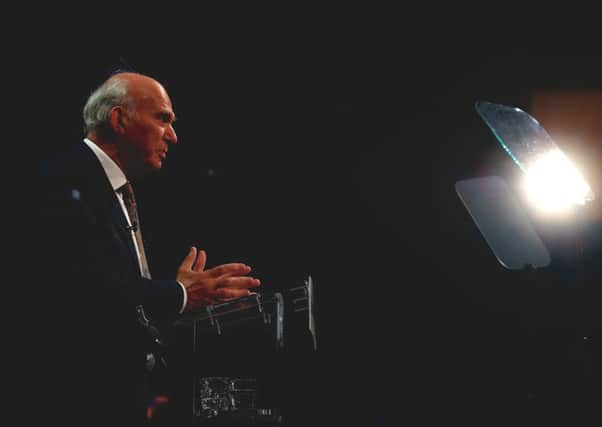A referendum Sturgeon should find hard to refuse


Firstly, why David Cameron allowed it to happen in the first place – and then the vote to Leave the European Union itself. It may not have been a shock in Sussex, but it certainly was in most parts of Scotland.
The mystery has continued as the painful negotiations have underlined the complexity of this whole process and the damaging consequences of Britain getting it wrong.
Advertisement
Hide AdAdvertisement
Hide AdDespite this, there has been no viable centrist party to speak for voters who are angry about leaving the EU; and the number of prominent people calling for a second referendum to endorse the terms of Britain’s departure has been tiny, apart from figures such as Tony Blair, Andrew Adonis and Nick Clegg.
The Lib Dems, at least, have been consistent about wanting a public vote once the terms of the UK’s departure from the EU are known, although their unpopularity following their coalition with the Tories still hangs over them.
Yesterday, Liberal Democrat leader Sir Vince Cable, at the party’s annual conference in Aviemore, called out Nicola Sturgeon for sitting on the fence on the issue. He urged the SNP to put the “wider national interest” before “narrow party advantage” to back proposals for another Brexit referendum.
Sturgeon has previously said a second ballot could become “irresistible”, but has stopped short of fully endorsing one.
It’s hard to disagree with Cable. Whether you voted Leave or Remain in June 2016, the last year has proven what an almighty challenge Brexit is to deliver and why the simple, one-off question we answered just doesn’t cover it.
Most voters only started to ask meaningful questions about remaining in the customs union or the single market after the first vote.
In effect, the referendum began a national debate about what it means to be in or out of the EU. This debate is only truly happening now.
Further, information on the final divorce bill, just how Brexit will affect the UK economy and changes in public opinion have all altered the playing field.
Advertisement
Hide AdAdvertisement
Hide AdLeave campaigners say a second vote is an affront to democracy, but a functioning democracy allows for decisions to be revisited.
If you took a new job or bought a house and then realised later it was a bad move, you wouldn’t just say: “I made my choice.” You would sell that house or get another job.
Even Nigel Farage supports a second referendum, although he believes a second vote would deliver another victory for Leave.
Yet the lack of key voices backing that option is worrying.
So Sturgeon should follow Cable’s call and support a referendum on the terms of the deal. SNP support and influence could prove crucial to making a second EU referendum happen.